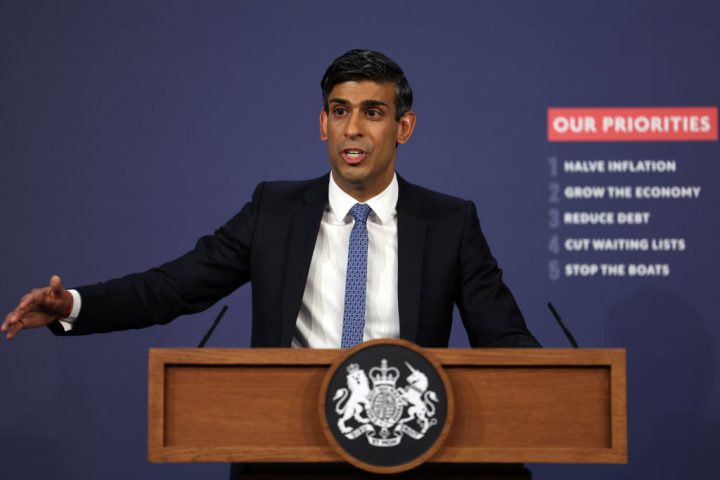When a party’s own natural supporters decide they have good reason to turn against it then the writing is normally on the wall. Things, though, are rather worse than that for Rishi Sunak’s Conservatives: Tory-leaning voters would now seem to have not one but two good arguments for hoping the party loses next year’s general election.
The first reason is obvious. There is a stone-cold fury at the multiple betrayals, losses of nerve, defenestrations and incompetent U-turns that have taken place since the sweet victory of December 2019 – and an ensuing wish to take revenge.
The party would suddenly have the time and space to develop a coherent policy programme
But the second is potentially more deadly still. There is a growing logical and reasoned case for anyone who wishes to see Britain heading in an avowedly Conservative direction to yearn for a Tory defeat in 2024.
To illustrate why, just ask yourself what the best achievable Tory performance on polling day would look like given the party’s precarious current polling position and the difficult political and economic outlook facing the government. How good could it get for Sunak under a reasonable best-case scenario? I would suggest that even an optimist would struggle to make the case for him winning more than a very slender overall majority of perhaps 20 seats at the maximum.
Now imagine what a fifth-term Tory administration with a majority of 20 or less could be expected to achieve. In effect, just a small number of MPs on the left flank of the party would exert a veto over policy measures. By siding with the opposition parties, or even just abstaining on key votes, the likes of Theresa May, Jesse Norman, Tobias Ellwood, Damian Green, Tom Tugendhat and others could torpedo any legislation they found uncongenial.
Were Sunak to decide that in order to get a grip on illegal immigration, Britain really would have to leave the European Convention on Human Rights and its supervisory court in Strasbourg, he’d have no chance of getting that measure through. Were he to come round to the case for radical welfare reform to make it harder to go on the sick and more worthwhile to earn an honest living, well he could forget about implementing that as well. Should he wish to resolutely tackle the march of ‘woke’ across the public realm, well, Caroline Nokes and her fellow travellers could sink that too.
In short, such a weak Tory administration would most likely be an utter shambles – worse by far than the standard achieved by the fourth-term regime after it banked a majority of 80 nearly four years ago. A 1992-style unlikely Tory win would lead to a hamstrung embarrassment of an administration to be followed by a 1997-style annihilation.
Now consider the likely course of events were the Conservatives to lose respectably in 2024. The party, so exhausted in office, would suddenly have the time and space to develop a coherent policy programme under a new leader with a clear set of principles. Let us call such a potential leader Bemi Kadenoch – any resemblance to any actually living Tory politician is clearly coincidental here – and the outlook immediately becomes rather exciting.
An energised and motivated new Toryism could emerge – one unashamed to go back to first principles on taxation, law and order, immigration, the size and scope of the state, support for the institution of the family and all the other things that we have seen turn to sludge. The Mayite ‘liberal Conservatives’ could be swept out so that the party could become, to use a horrible phrase, ‘fit for purpose’ in an era when social and cultural Conservatism has huge potential appeal.
And while Keir Starmer is undoubtedly a slippery character offering an unreliable prospectus, it is only fair to acknowledge that he isn’t Jeremy Corbyn. On key issues such as defence he can probably be relied upon not to advance the national handcart towards hell any faster than it has already been travelling. Yet Starmer would still fail to tackle the many deep-seated problems Britain faces because socialism – even in moderate form – is simply unable to harness the talents of the people.
The most likely course of events, I suggest, would then be a sweeping victory in 2028 or ’29 for an epoch-making Conservative party no longer weighed down by social liberals. If Sunak can’t convince Tory-leaning voters that he is going to win well next year – and that is one heck of a tall order – then the case for him not winning at all becomes very compelling indeed.







Comments